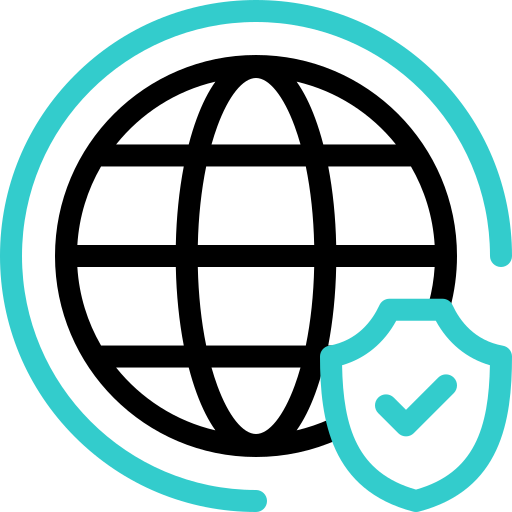TUTORIJALI
07-Feb-2023
Podešavanje besplatnog i automatizovanog SSL-a sa Let's Encrypt-om i Nginx-om na Linux-u
 Ovaj sadržaj je dostupan samo na engleskom.
Ovaj sadržaj je dostupan samo na engleskom.1.Installing Certbot
1.1.On Debian-Based Systems
To install Certbot and its Nginx plugin on Debian-based systems like Ubuntu, execute the following commands:sudo apt install certbot python3-certbot-nginxThis setup prepares your system for SSL certificate management.1.2.On Red Hat-Based Systems
Start by enabling the EPEL repository to access Certbot packages:sudo yum install epel-releaseThen, proceed to install Certbot and the Nginx plugin:sudo yum install certbot python3-certbot-nginxThis process readies your Red Hat-based system for SSL certificate management.2.Acquiring SSL Certificates with Certbot
With Certbot installed, the next step is to use it to obtain SSL certificates from Let's Encrypt. This procedure includes Certbot making modifications to your Nginx configuration to secure your website's connections.2.1.Configuring Nginx and Obtaining Certificates
To secure your site with an SSL certificate, run:sudo certbot --nginxThis command initiates an interactive session that guides you through the certificate acquisition process. Certbot will automatically update your site's Nginx configuration file to use the newly obtained certificate, ensuring secure connections.During this process, Certbot saves the SSL certificate files to a standard location on your system. On Debian-based and Red Hat-based systems, these files are typically located in the /etc/letsencrypt/live/yourdomain.com/ directory. This directory will contain the certificate file (cert.pem), the private key (privkey.pem), and other related files necessary for SSL configuration.3.Automated Renewals
Let's Encrypt certificates are valid for 90 days, requiring renewal to maintain website security. Certbot automatically configures your system for these renewals. To verify the setup, perform a dry run with:sudo certbot renew --dry-runA successful test ensures that your system is configured to automatically renew certificates, keeping your site secure without needing manual intervention.4.Postavite sa Interspace Cloud serverima
Za one koji žele da brzo počnu, Interspace Cloud platforma nudi efikasno rešenje. Možete postaviti virtuelni server sa preinstaliranim operativnim sistemom i aplikacijama za oko minut. Interspace ide dalje od brzog postavljanja omogućavajući vam da pre-konfigurišete vaše sisteme sa prilagođenim podešavanjima pre nego što instalacija počne. Ovo uključuje podešavanje pristupnih detalja, domena, portova za konekcije i drugih opcija specifičnih za aplikacije.Pored brzog postavljanja, Interspace se ističe svojim odnosom cene i performansi. Pozivamo vas da istražite pakete i cene na stranici za Elastic Cloud VPS.Sadržaj ovog dokumenta je licenciran od strane Interspace-a pod MIT licencom
Povezani sadržaj
Dokumentacija

Cloud

Komunikacije

Hosting

My Interspace
Tehnički članci

Tutorijali

Učenje
Vesti

Najnovije vesti

Najnoviji događaji
Povezani proizvodi

Premium Internet pristup
Internet pristup najvišeg kvaliteta za profesionalne potrebe. Superiorna point-to-point optička veza, simetrična brzina download/upload, neograničen saobraćaj, SLA 99.9% i statička IP adresa. Direktne veze sa vodećim tier 1 globalnim provajderima.
Naša mrežna arhitektura je pažljivo dizajnirana da obezbedi najviši kvalitet konekcija ka bilo kojoj destinaciji širom sveta, sa nenadmašnim brzinama prenosa i višeslojnom redundansom.

Dedicated Serveri
Namenski serveri na hardveru visokog kvaliteta od poznatih proizvođača servera. Hostirani su u našim data centrima, što nam omogućava potpunu kontrolu u osiguranju neprekidnog rada 24/7. Izbor primarnih data centara i disaster recovery centra lociranog na bezbednoj udaljenosti.
Opcije za kontrolu napajanja (reset, isključivanje/uključivanje) i besplatan KVM-preko-IP dostupni 24/7 na jedan klik, uključujući podršku za daljinsko pokretanje/instalaciju vaših ISO slika.

Elastic Cloud VPS
Elastic Cloud VPS je virtualna mašina koja radi na naprednim cloud i mrežnim tehnologijama, nudeći superiorne prednosti u odnosu na tradicionalni VPS hosting po izuzetnom odnosu cene i performansi.
Podignite OS i aplikacije za samo 1 minut. Geo-redundantni bekapi jednim klikom, snepšoti i oporavak od katastrofe. Procesori nove generacije AMD EPYC, ultra-brzo NVMe skladištenje, dedikovane konekcije i besplatna privatna mreža.
 Srpski
Srpski Deutsch
Deutsch Македонски
Македонски Slovenščina
Slovenščina Shqip
Shqip Български
Български